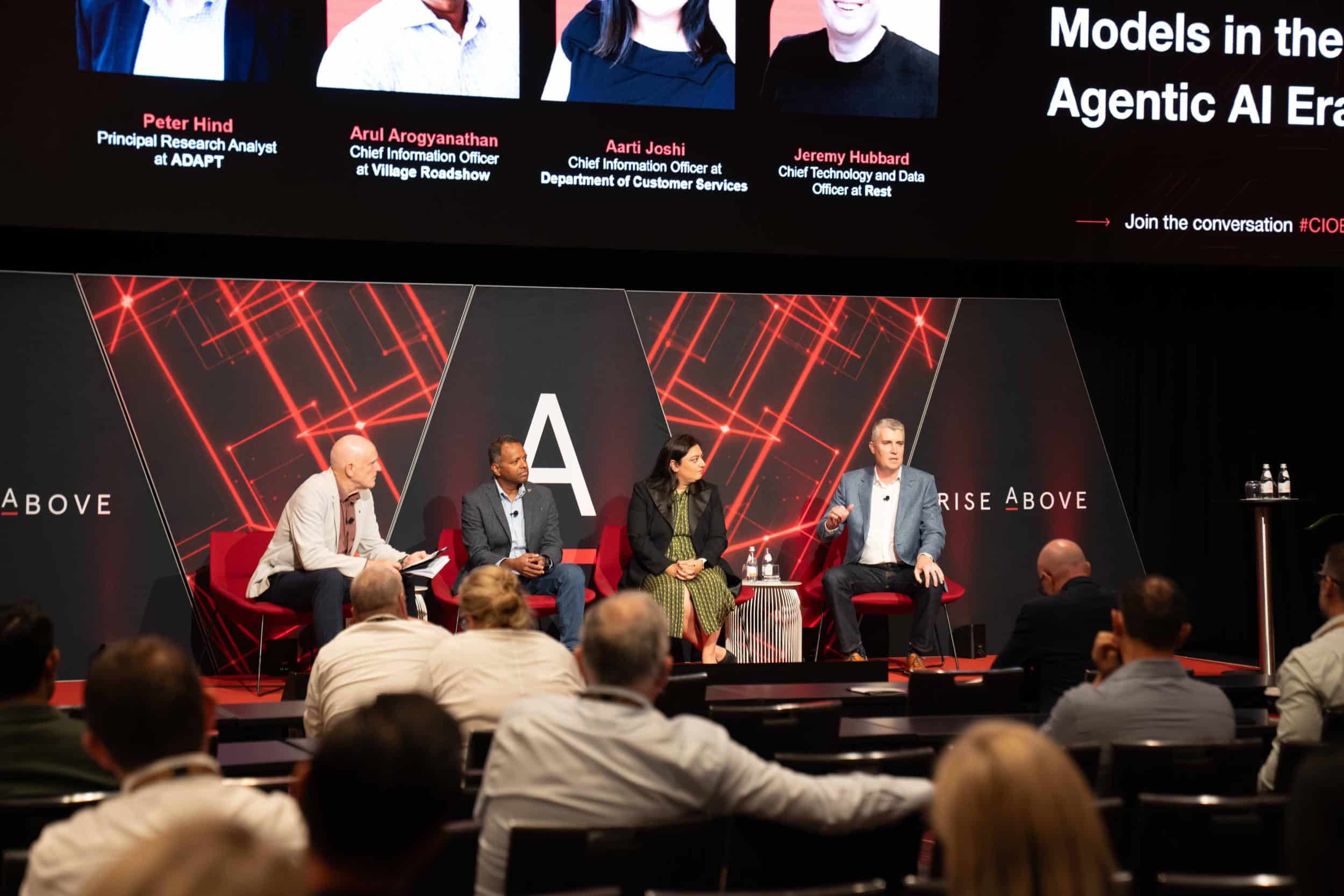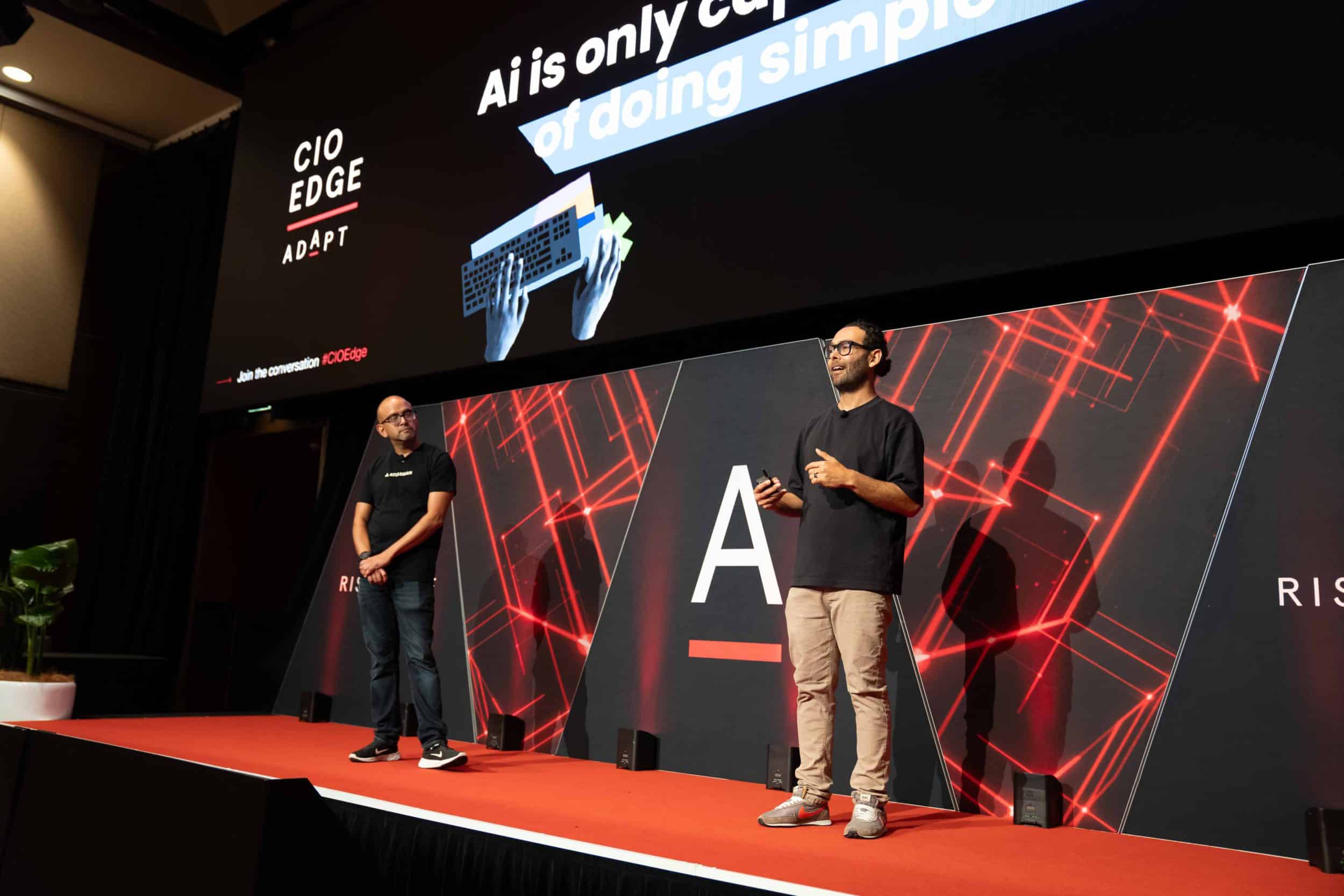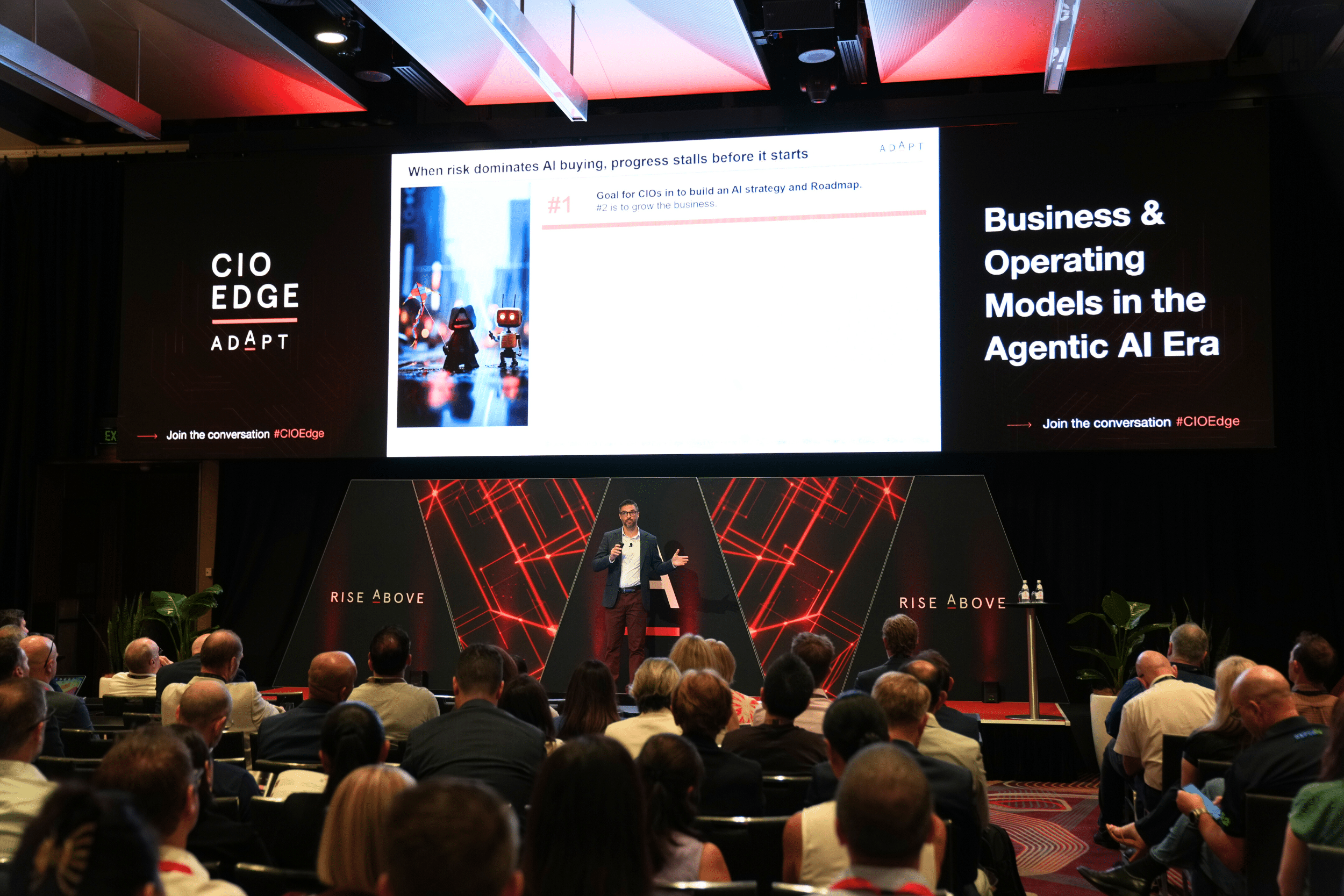How are Australian CIOs driving business value?
Australian CIOs tackle driving digital transformation through AI readiness, modernisation, and collaboration to unlock real business value and operational efficiency.
AI readiness gap and modernisation barriers
ADAPT’s latest insights, presented by Gabby Fredkin, Head of Analytics & Insights, draw on data from ADAPT’s IT conferences over the past eight months, including CIO Edge, Security Edge, Data & AI Edge, and Cloud & Infrastructure Edge.

These insights highlight the key challenges Australian organisations face as they navigate modernisation and prepare for AI integration.
Despite 58% of CIOs reporting moderate infrastructure modernisation, only 1% feel fully prepared to harness AI in the next 12 months, while 47% admit they need to be better equipped.

The top barriers hindering progress include:
- Data Quality Issues (1st)
- Lack of Data Skills (2nd)
- Adverse Culture and User Resistance (3rd)
Resource constraints are also a major factor, with 88% of CIOs stating they do not have enough resources.
55% of applications consolidated through APIs are 2.3 times more advanced in modernisation compared to those with only 19% connectivity.

This points to the need for a robust, integrated infrastructure to enable agility and effective AI adoption.
Time investment and collaboration also play pivotal roles in overcoming modernisation challenges.
Gabby noted that 48% of CIOs dedicating an additional three to four weeks per year to managing their functions report marked improvements in application consolidation, leading to better operational efficiency.
Collaborating with other executives (25% of CIOs) enhances data quality and integration by 1.7 times and increases cyber resilience by 1.8 times.
Additionally, collaboration with external customers (14% of CIOs) results in 1.6 times more value from ecosystems and a 15% increase in revenue from cross-selling.
These insights highlight the complex yet crucial path forward for CIOs—balancing infrastructure modernisation, data management, and AI readiness while fostering collaboration across the organisation to fully capture business value.
Driving organisational change through AI adoption
In his speaker presentation, Michael Kollo, ADAPT Advisor and CEO at Evolved AI, provided crucial insights for CIOs facing the challenges of AI adoption.
Michael emphasised that while AI tools, like generative AI, are capable of producing human-like conversations and automating complex tasks, CIOs must guide their organisations through these innovations at an “acceptable rate of change.”
Rather than being swept away by the rapid advancements in AI, the focus should be on integrating these technologies incrementally to match the organisation’s capacity for change.
Michael highlighted the importance of using AI to augment existing processes—such as automating routine tasks and improving operational efficiencies—before pushing for full-scale transformations.

He pointed out that the real challenge for CIOs is not just deploying the technology but ensuring cross-departmental collaboration, aligning AI initiatives with business objectives, and fostering a culture of innovation.
Addressing the common fear of job displacement, Michael urged CIOs to implement a “no person left behind” policy.
By framing AI as a tool to enhance human roles rather than replace them, CIOs can reduce anxiety and build trust in AI adoption.
Creating a risk-tolerant culture and managing change incrementally allows organisations to harness the true potential of AI, ensuring that it delivers tangible value while keeping the workforce engaged and secure.
These insights reinforce the CIO’s pivotal role in leading not just technology initiatives, but also the broader organisational shift towards a future defined by AI and innovation.
Realising business value from technology initiatives
In a panel discussion moderated by Matt Boon, Senior Research Director, industry leaders Rosalie Adriano, CIO at Nestle Oceania, David Heacock, Digital Transformation Specialist, and Christopher Johnson, Head of Group Technology at Charter Hall shared their experiences and strategies for driving business value from tech initiatives.
Rosalie opened by sharing how Nestle navigated the pandemic and the importance of building trust between IT and the business.
She emphasised that aligning technology initiatives with business objectives starts with securing core foundations—reliable IT operations and compliance.
For Nestle, the shift to a “business-led, tech-enabled” approach became crucial in driving innovation, with initiatives like reverse mentoring and digital immersion days for the C-suite.

Rosalie highlighted that fostering a growth mindset is key to opening minds to new technologies like AI, and empowering employees to contribute to innovation efforts.
David focused on the role of product-based approaches in delivering business value, sharing examples of how organisations overseas have achieved significant productivity gains through cross-functional teams.
He stressed the importance of funding transformation initiatives differently—moving from traditional CapEx-driven projects to more sustainable, long-term investments.
David also highlighted the importance of understanding both human and process aspects when driving technology-led transformations, ensuring that business goals remain at the centre.
Christopher brought a different perspective, emphasising the importance of context.
While product-based approaches may work for some, Charter Hall focuses on embedding technology within business capabilities, such as treasury management.
Christopher talked about the importance of treating IT as an integral part of the business, not a separate function.
He also touched on the value of creating strong business cases for technology investments, ensuring that business leaders have a stake in driving change and measuring outcomes.
The panel’s insights underscored the need for CIOs to be strategic leaders, capable of aligning technology with business needs while fostering a culture of collaboration and innovation.
The discussions around AI readiness and modernisation highlight a clear path forward for Australian CIOs.
Organisations must focus on building solid infrastructure foundations while addressing critical barriers like data quality, resource constraints, and cultural resistance.
Time investment and cross-functional collaboration are key, enabling more streamlined processes and better data integration, ultimately driving operational efficiencies.
As AI continues to evolve, the role of the CIO will shift from merely managing technology to leading business transformation, ensuring that innovations are adopted at a pace that aligns with the organisation’s capabilities.
By embracing these strategies, CIOs can unlock new opportunities and deliver real, measurable value to their organisations.





























